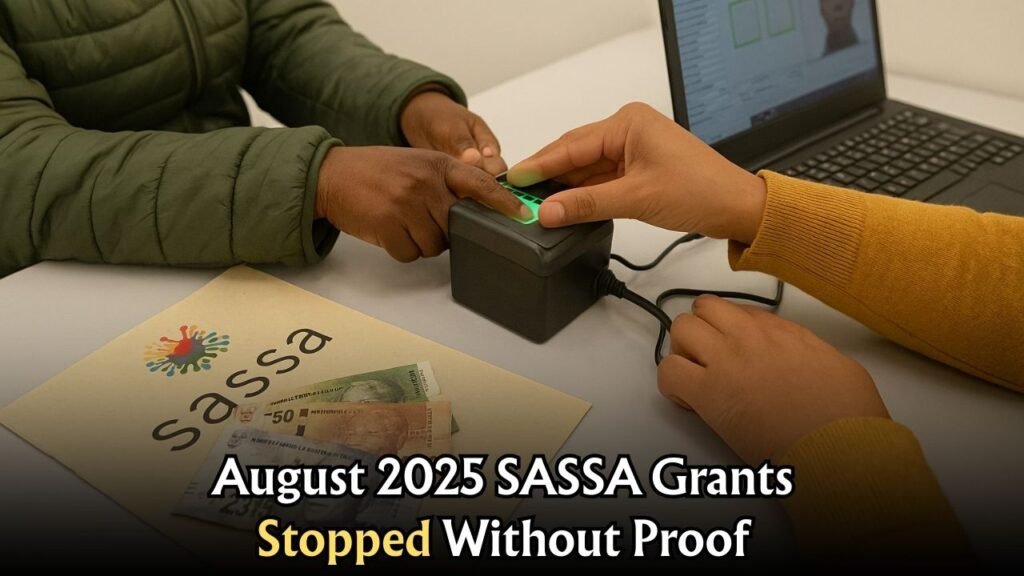SASSA September 2025 Grants: In September 2025, South Africans receiving grants from the South African Social Security Agency (SASSA) are set to see crucial changes, with payments of R2,315, R560, and R1,250 now linked to biometric verification. This move is part of an ongoing effort to enhance security and ensure that social grants reach the rightful beneficiaries. The initiative aims to curb fraud and streamline the process, making it easier for recipients to access their funds without unnecessary delays. By implementing biometric verification, SASSA seeks to solidify its commitment to transparency and accountability in grant distribution, providing a more secure and reliable service to millions across the nation.

Biometric Verification for SASSA Grants: A Security Measure
The introduction of biometric verification for SASSA grants is seen as a landmark step in securing social welfare payments in South Africa. This technology involves using unique biological traits, such as fingerprints or facial recognition, to authenticate the identities of grant recipients. This method significantly reduces the risk of fraudulent claims, ensuring that only those entitled to receive the funds do so. With instances of fraud having plagued the system in the past, biometric verification provides a robust solution to safeguard the integrity of the grant distribution process. By adopting this advanced security measure, SASSA not only protects the funds but also aligns with global trends in digital identification and security, offering a modern and efficient service to its beneficiaries.
Breakdown of Grant Payments: R2,315, R560, and R1,250
The SASSA grants disbursed in September 2025 include payments of R2,315, R560, and R1,250, each serving different segments of the population based on specific needs and eligibility criteria. The R2,315 payment generally supports the elderly, providing them with necessary financial assistance to cover basic living expenses. Meanwhile, the R560 grant is often targeted at child support, ensuring that children in low-income households have access to essential resources for development and education. The R1,250 payment usually aids those with disabilities, offering them a lifeline to manage daily challenges and maintain a decent quality of life. These grants play a crucial role in alleviating poverty and supporting vulnerable communities, highlighting the importance of an effective and secure distribution system.
Challenges and Solutions in Implementing Biometric Verification
While the transition to biometric verification presents numerous benefits, it also poses challenges that SASSA must address to ensure a smooth implementation. One primary concern is the accessibility of biometric registration centers, particularly in rural areas where infrastructure may be limited. To tackle this, SASSA is working on mobile registration units that can reach remote communities, providing on-the-spot registration services. Additionally, there are concerns about the privacy and security of biometric data. SASSA is committed to adhering to strict data protection standards, ensuring that personal information is stored securely and used solely for verification purposes. By addressing these challenges head-on, SASSA aims to build trust and confidence among grant recipients, ensuring that the new system meets the needs of all South Africans.
The Future of Social Grants in South Africa
As South Africa looks to the future, the integration of biometric verification into the SASSA grant system represents a significant step towards modernizing social welfare. This initiative not only enhances security but also lays the foundation for more streamlined and efficient service delivery. By leveraging technology, SASSA is poised to improve the overall experience for grant recipients, ensuring that funds are distributed quickly and accurately. The success of this program could pave the way for further innovations in social security, potentially expanding into other areas of government service. As the country continues to embrace digital transformation, the social grant system is set to become more resilient, transparent, and effective in supporting the most vulnerable members of society.



